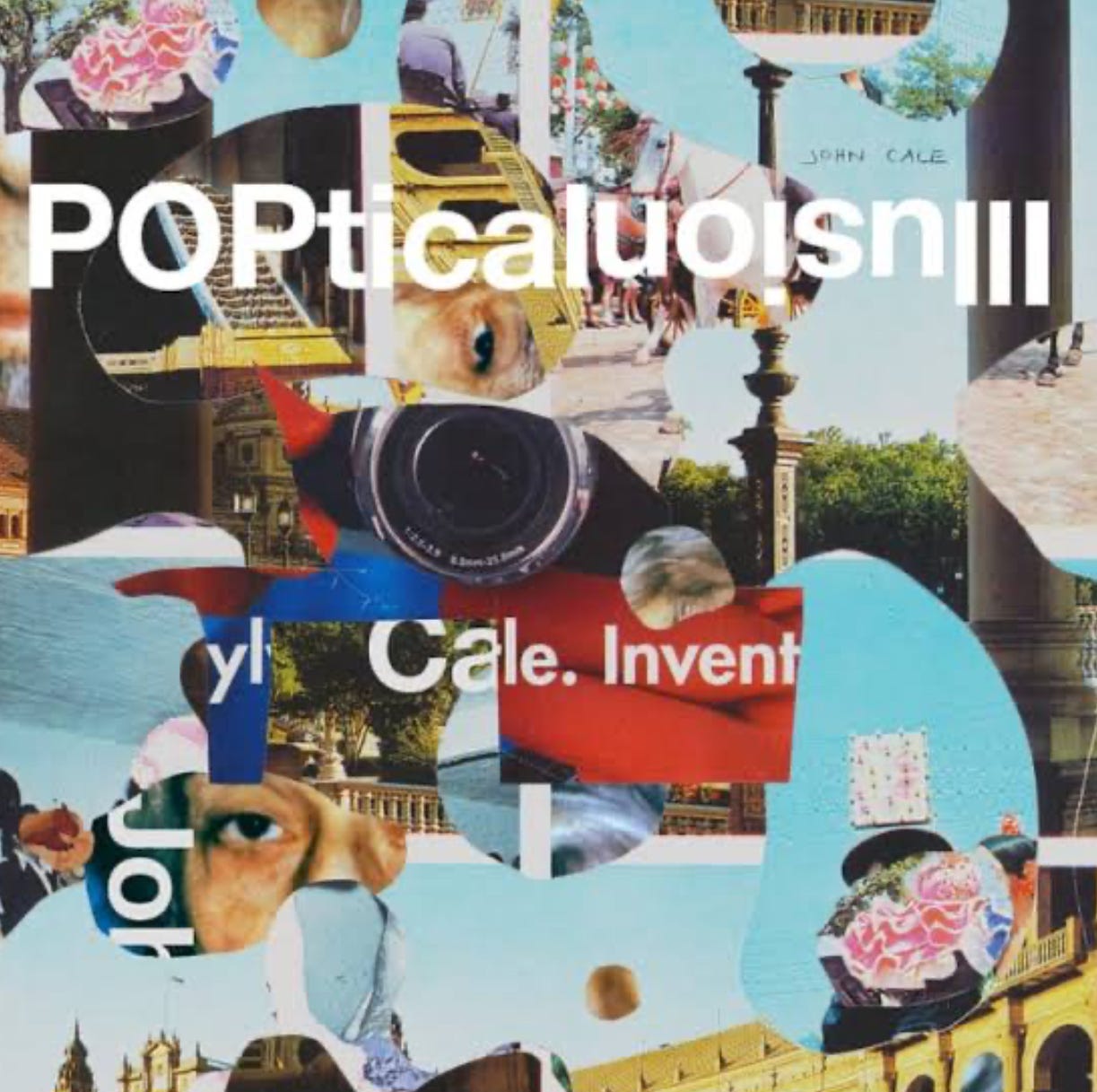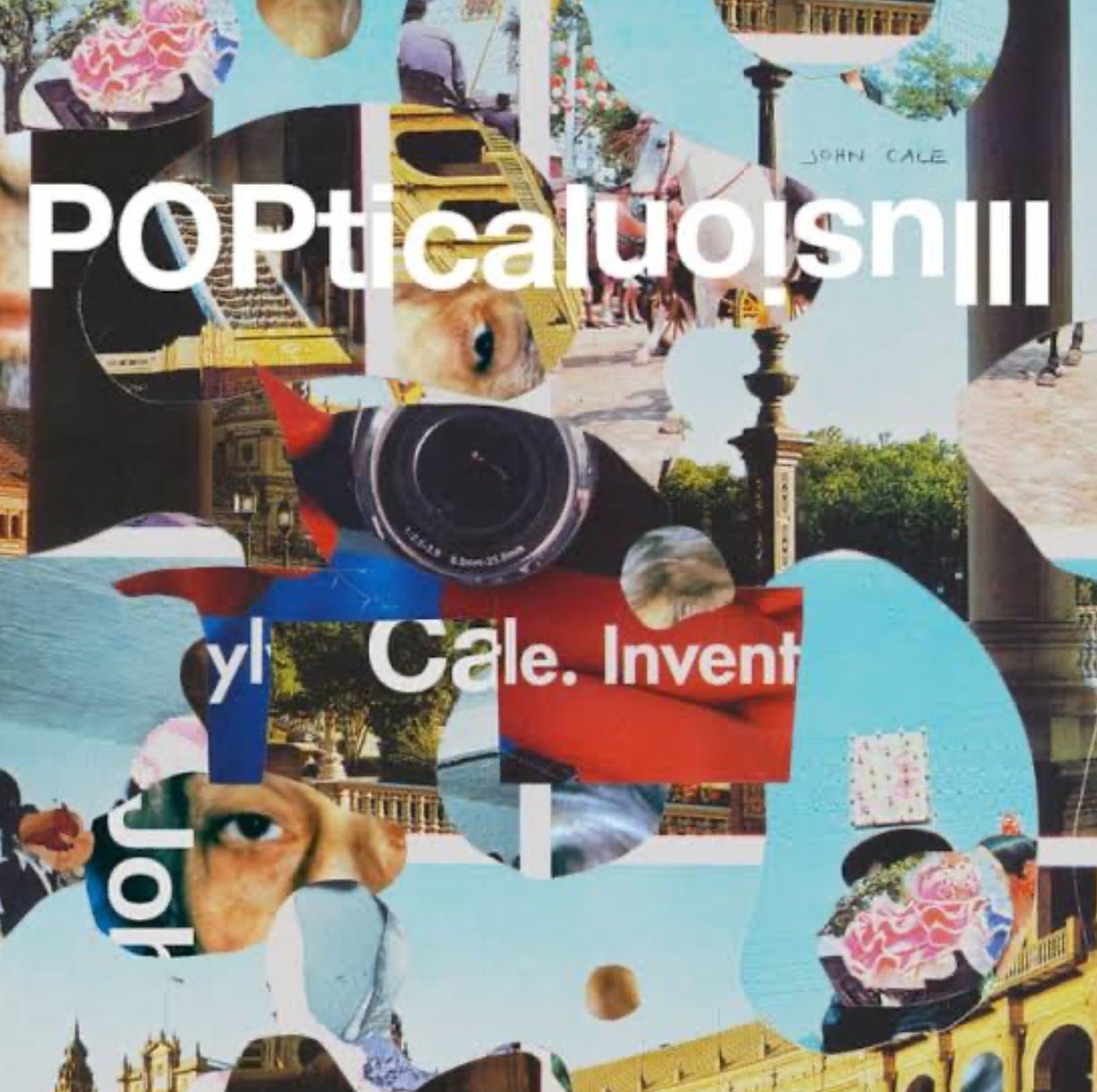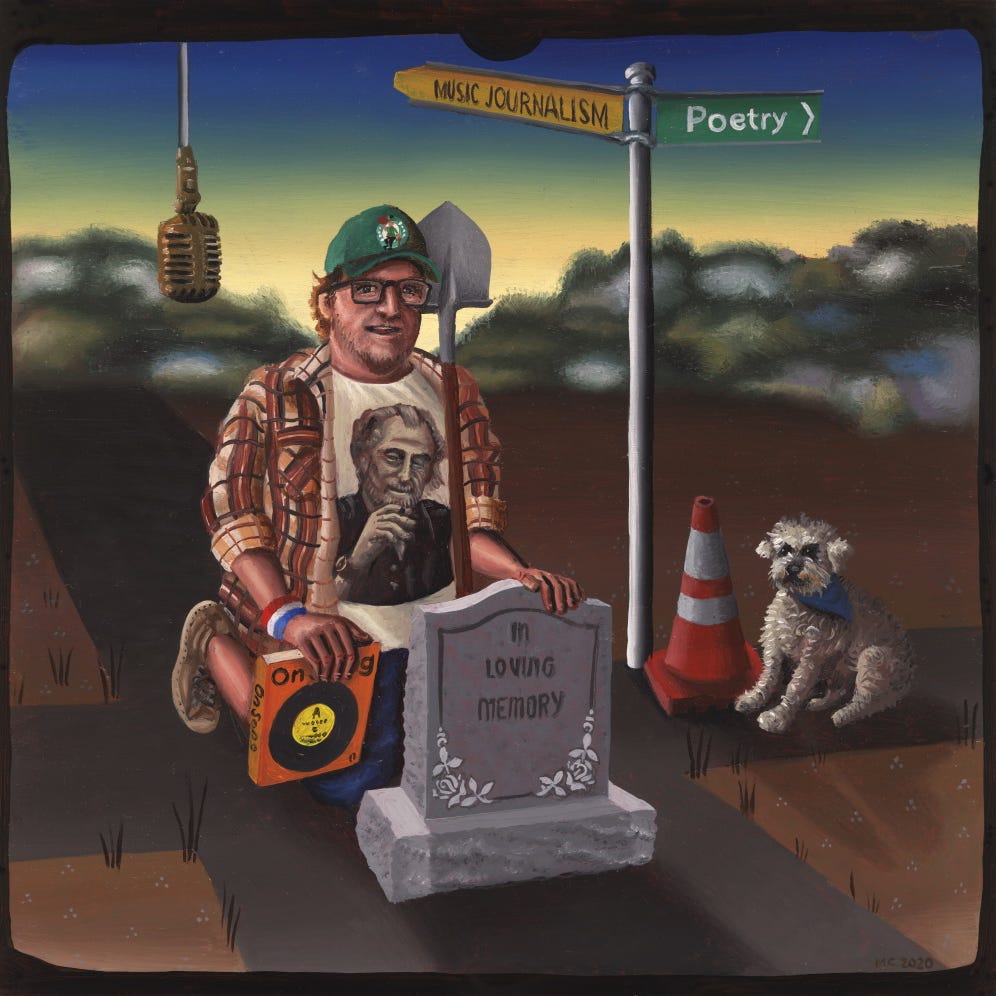John Cale: POPtical Illusion
An album review of John Cale’s latest, one of his best in years. A continuation of his career-long form. At 82, he’s hitting fresh heights.
John Cale
POPtical Illusion
Domino Recording Co. Ltd.
I’ve always been amazed by how John Cale manages to be at his subversive best when he’s hiding in plain sight, making music that isn’t at all abrasive, that is very nearly ‘pop’ music in the most conventional sense — all through his career, across every decade, are these albums, think Vintage Violence (1970), or Artificial Intelligence (1985), Walking on Locusts (1996), or M:Fans (2016), and last year’s Mercy. They have just a little of the Cale twist, that zest. But they’re not alienating, and yet there’s also no pandering — at no stage is he trying to win anyone over.
The same is true for POPtical Illusion, a second album, hot on the heels of last year’s Mercy, to be taken from the mammoth Lockdown songwriter session which netted the now 82-year old with close to one hundred new songs.
POPtical Illusion has lovely, soft washes of synths, and Cale sounds calm and happy he’s still (always) musically adventurous. But there’s a droll, wry feel to the way he operates always, and that’s somehow present here - even at 82. It feels like he’s moved on through his anger though, so much so that even a song titled I’m Angry feels ridiculously mellow.
Mercy was shot through with darkness, playful, ‘pop’-ish, but dark. So it’s easy to see and hear and feel POPtical as its obvious flip side, the songs selected to sit together — Cale always making albums, never just releasing a bunch of songs.
And there’s some great jagged edges still. Shark-Shark feels like a reminder of his best 1970s work, Company Commander wouldn’t be out of place on Tom Waits’ Mule Variations, and Edge of Reason takes his M:Fans/Music For A New Society trick of recontextualisation, but here it’s just a single line from a single song - however it’s Fear Is A Man’s Best Friend, all of its darkness gone this time. The line a withered version of its former self.
How We See The Light might be the early highlight, a wonderful pop chorus sitting there inside a gentle, optimistic song.
How very Welsh of Cale to be still raging against the dying of the light, even if there’s far less rage than there used to be eh.
He’s compelled to work, and he’s compellingly experimental, even when he’s sitting inside softer hues. His life’s work has been less about making songs, and more about playing deep inside textures, shaping sounds, finding new ways to harness grit and transcribe it, transpose it, translate it.
POPtical Illusion is that sort of record that you can have on in the background and just let the afternoon absorb into it; repeated plays. It’s also one for the foreground too of course — and I can’t imagine not listening to this. It feels, already, nearly as bedded in as those earlier vital albums. In fact, I’ll circle back to that Mule Variations reference. This album is to Cale’s career as that was to Waits’ back in the late 1990s. Return to form, if you like. Continuation of very best form more likely. But albums that remind you — instantly — of the greatness and the way that it is just beamed into place. Whole worlds of sonic experimentation happening all at once, and wilfully for the joy and sustenance of the composer/s as much as for the substance they leave in the listening world.







